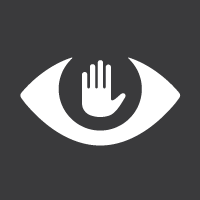Back in 1999 Scott McNealy, then CEO of Sun, uttered the immortal phrase, “You have zero privacy anyway. Get over it.” Given that Sun’s slogan at the time was, “The Network is the Computer”, McNealy’s pronouncement was tantamount to saying, “Digital networks can’t protect privacy, so stop trying to pretend they can.”
Ten years later, McNealy’s quote must have seemed positively prescient when commercial tracking of Internet users had become so pervasive that the U.S. Federal Trade Commission called for a Do Not Track standard.
But that almost seems innocuous in comparison to the recent revelations about PRISM and the extent of government surveillance of electronic communications in the U.S. and elsewhere.
Suddenly Internet privacy is a joke. Barely a late-night Letterman or Leno show goes by without another barb about the NSA being the nation’s unpaid backup service.
But in fact it is dead serious. Look no further than this post announcing the closure of the highly regarded legal analysis blog Groklaw by its founder, Pamela Jones. It was covered by dozens of publications from The Guardian to The Huffington Post.
When I read it—and realized what it signified—I could almost hear the backlash starting. It was like feeling the sudden onshore wind and scattering birds that were the first signs of the 2004 Indian Ocean tsunami portrayed in The Impossible.
In the back of my head I heard the words of Bob Blakley, former head of Identity and Privacy research at the Burton Group and then Gartner, who wrote (in a blog post unfortunately no longer directly available):
“Privacy is a social good which we give to one another, not a social order in which we control one another.”
Bob’s words captures perfectly why technology alone cannot take away our privacy. Only people can take away our privacy—because it is people who give us our privacy. If any country or society or community values privacy enough, it can create very strong disincentives for people to take it away, no matter what technology they are using.
And this, I believe, is what is going to happen. The Internet privacy dam is going to start breaking—but not in the direction of spilling out our data everywhere. Rather it will start spilling out the collective anger of the Internet citizenry that our privacy is being violated at a level far beyond what is acceptable in a free world.
And we will start to do something about it. Because our privacy IS under our control. This is one of the primary reasons we are building the Respect Network.
Stay tuned—much more to come on this topic in upcoming posts.
Drummond Reed
Co-Founder, CTO Respect Network
PbD Ambassador






